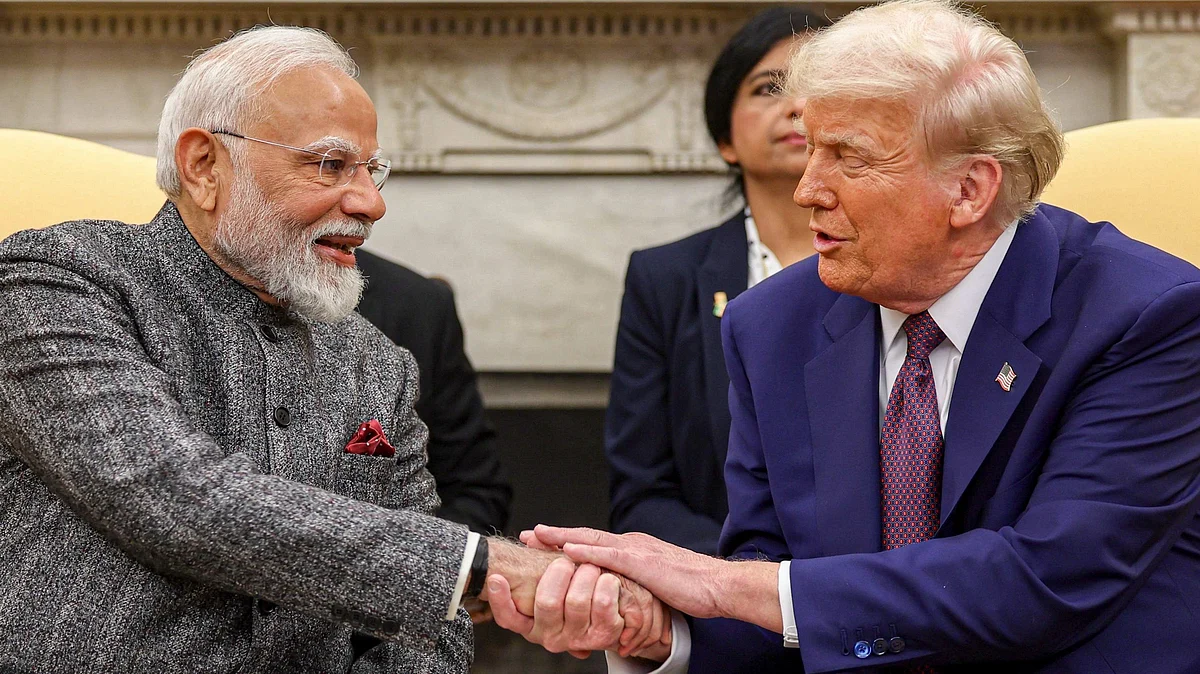India eyeing tariff cuts on more than half of US imports, Reuters report says
Expert notes that Modi government has shown little inclination for sweeping tariff reductions of the magnitude Trump desires

India is considering a significant reduction in tariffs on over half of US imports, valued at $23 billion, as part of the initial phase of a trade agreement currently under negotiation between the two countries, as per an exclusive Reuters report. This move, the most substantial tariff cut in years, aims to prevent the imposition of retaliatory duties.
The Indian government is looking to cushion the potential economic impact of US President Donald Trump's proposed global reciprocal tariffs, scheduled to take effect on 2 April. The looming tariff measures have unsettled global markets and prompted urgent discussions among policymakers, even in allied nations, the report states.
The report also cites an internal assessment by the Indian government, which estimates that the reciprocal tariffs could affect approximately 87 per cent of India’s total exports to the US, which are worth $66 billion. Two government officials, speaking anonymously owing to the sensitivity of the matter, disclosed this information to Reuters.
As part of the proposed trade agreement, India is prepared to lower tariffs on 55 per cent of the US goods it currently taxes at rates ranging from 5 to 30 per cent. The sources indicated that for certain categories, tariffs could be significantly reduced or even eliminated, potentially benefiting over $23 billion worth of US imports.
India’s trade ministry, the prime minister’s office, and government spokespersons have not provided any comments regarding these developments, as per Reuters.
According to World Trade Organization data, the US trade-weighted average tariff stands at approximately 2.2 per cent, compared to India’s 12 per cent. The US maintains a trade deficit of $45.6 billion with India.
During Prime Minister Narendra Modi’s visit to Washington in February, both nations agreed to commence discussions aimed at securing an early trade agreement and resolving ongoing tariff disputes. New Delhi is keen to finalise a deal before the reciprocal tariffs are enforced.
However, Indian officials caution that the extent of tariff reductions will depend on obtaining relief from US reciprocal taxes. The proposal is not yet final, with other strategies under consideration, including sector-specific tariff adjustments and product-by-product negotiations instead of broad tariff cuts.
India is also exploring broader tariff reforms to simplify trade barriers across the board, though these discussions are still in preliminary stages and may not be immediately relevant to the US talks.
Despite PM Modi’s swift congratulations to Trump on his election victory, the US President has consistently labelled India a “tariff abuser” and “tariff king,” emphasising his intent to impose tariffs on all trading partners.
New Delhi projects that tariffs on goods such as pearls, mineral fuels, machinery, boilers, and electrical equipment — comprising half of India’s US-bound exports — could rise by 6-10 per cent under the proposed reciprocal tax framework. Pharmaceuticals and automotive exports, collectively worth $11 billion, are expected to face the most severe disruptions due to their high reliance on the US market. The changes could create opportunities for alternative suppliers like Indonesia, Israel, and Vietnam.
To navigate domestic political sensitivities, the Indian government has set clear boundaries for its negotiations. Tariffs on key agricultural products such as meat, maize, wheat, and dairy — currently ranging from 30-60 per cent — are off-limits for reduction, according to a third government official. However, duties on items like almonds, pistachios, oatmeal, and quinoa may be reconsidered.
Additionally, India is pushing for a gradual reduction in automobile tariffs, which currently exceed 100 per cent, a fourth official noted.
The complexity of India's position was underscored by statements made by its trade secretary in a closed-door parliamentary meeting on 10 March, as well as remarks from US commerce secretary Howard Lutnick. Sunil Barthwal, India’s trade secretary, affirmed to lawmakers that while maintaining strong trade ties with the US is a priority, the nation would not compromise on its core economic interests.
Meanwhile, Lutnick urged India to take a more ambitious approach following its recent tariff reductions on high-end motorcycles and bourbon whiskey.
Reuters quotes Milan Vaishnav, a South Asia expert at the Carnegie Endowment for International Peace, who notes that Modi’s administration has shown little inclination for sweeping tariff reductions of the magnitude Trump desires. He speculated that while the Modi government might leverage US pressure to push through politically challenging tariff reforms, expectations should remain tempered.
Follow us on: Facebook, Twitter, Google News, Instagram
Join our official telegram channel (@nationalherald) and stay updated with the latest headlines
